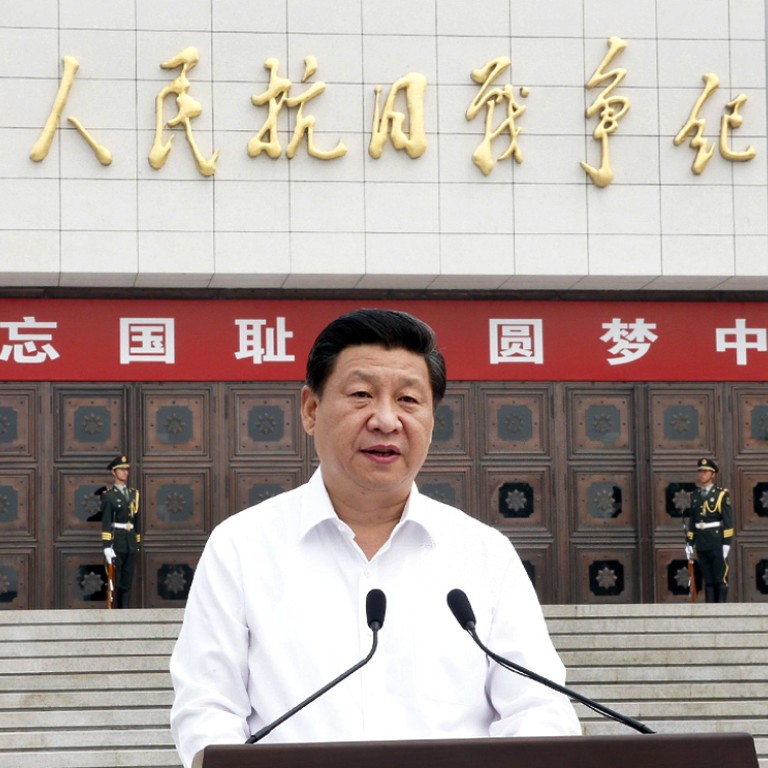
Xi Jinping blasts Japan at 77th anniversary ceremony of Marco Polo Bridge Incident
High-profile Sino-Japanese war ceremony seen as aimed at Taiwanese
Xi Jinping yesterday became the first Chinese president to attend an official ceremony commemorating the start of the Sino-Japanese war, as Beijing ramps up its efforts to denounce Japan's wartime atrocities.
Xi joined more 1,000 people at a ceremony in Beijing to mark the 77th anniversary of the Marco Polo Bridge incident which sparked the war.
Besides stepping up its campaign against Japan's lifting of its post-war ban on overseas military operations, commentators said Beijing held the unusually high-profile ceremony in a bid to try to unite the people of the mainland and Taiwan against Japan's wartime atrocities.
Watch: Archive newsreel about the Marco Polo Bridge incident
"No one can revise history and truth," Xi said during the ceremony. "Chinese people who made great sacrifices [during the war] would never allow anyone to play down [Japan's] wartime atrocities."
Accompanied by Nationalist war veteran Lin Shangyuan, a member of the Revolutionary Committee of the Kuomintang, one of eight registered minor non-communist parties on the mainland, Xi unveiled a statue named after the Medal of Independence and Freedom awarded to Sino-Japanese war veterans.
Premier Li Keqiang also raised the issue of the Sino-Japanese war during a press conference with visiting German Chancellor Angela Merkel yesterday, saying learning from the past promised a brighter future.
Taiwanese President Ma Ying-jeou said at a photography exhibition in memory of the island's liberation from Japan that Taiwan "will never yield an inch in its territorial claim" to the disputed Diaoyu Islands, which Japan calls the Senkakus.
Japanese Chief Cabinet Secretary Yoshihide Suga hit back at Beijing. He said "China, by unnecessarily turning a historical issue into an international one, does nothing to contribute to peace and cooperation in the region".
Analysts said commemorations of the Marco Polo Bridge incident - a turning point in Chinese history that paved the way for the Second United Front, a brief alliance between the Communist and Nationalist armies to fight Japanese troops from 1937 to 1946 - would help Beijing win over the Taiwanese public.
"Such high-profile commemorations serve to evoke a sense of belonging with the ethnic Chinese identity - the basis of a consensus over the 'one China' principle - across the strait," said Wang Xinsheng, a Japanese history expert at Peking University.
Professor George Tsai Wei of the Chinese Culture University in Taipei agreed. "It's a good opportunity for Xi to remind Taiwan of previous Japanese aggression and call for strengthening of cross-strait cooperation to deter Japanese attempts to water down relations between the two sides of the Taiwan Strait," Tsai said.
Beijing-based political commentator Zhang Lifan said deteriorating relations [with Japan] allowed politicians to "play up nationalist sentiments and centralise political power".

